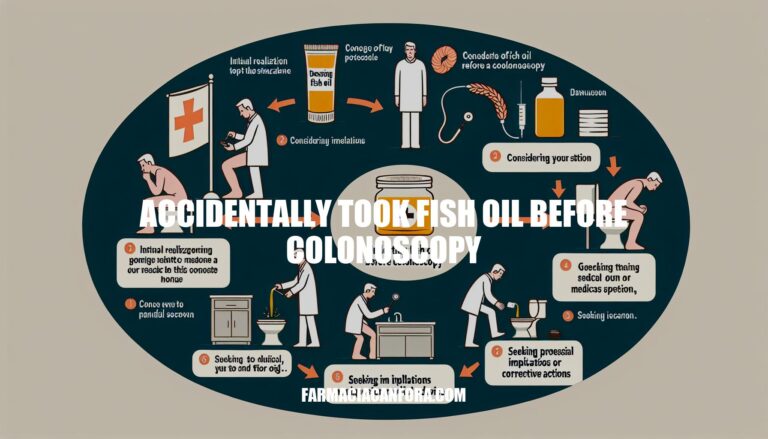


Proper preparation for a colonoscopy is crucial to ensure accurate results. This involves following a specific diet and taking prescribed laxatives to clear the colon. However, accidentally taking fish oil before the procedure can interfere with the preparation, as it may increase the risk of bleeding. Always consult your doctor about any supplements or medications you are taking to avoid complications.
Taking fish oil before a colonoscopy can increase the risk of bleeding during and after the procedure. Fish oil has blood-thinning properties, which can complicate the removal of polyps or tissue samples. This can lead to excessive bleeding, making it harder for the doctor to get clear images and potentially requiring additional medical intervention. Always inform your doctor if you’ve taken fish oil before a colonoscopy to ensure your safety.
It’s crucial to inform your healthcare provider if you’ve accidentally taken fish oil before a colonoscopy. Fish oil can increase the risk of bleeding, which might complicate the procedure. Your doctor may need to adjust the timing of your colonoscopy or provide specific instructions to ensure your safety and the effectiveness of the procedure. Always communicate any deviations from your preparation plan to your healthcare team.
Here are some tips to help you avoid accidentally taking fish oil before a colonoscopy:
One Week Before:
Three Days Before:
Day Before:
These steps should help ensure you’re well-prepared and avoid any accidental intake of fish oil before your colonoscopy. Good luck with your procedure!
Accidentally taking fish oil before a colonoscopy can increase the risk of bleeding due to its blood-thinning properties, potentially complicating the procedure. To avoid this, it’s crucial to inform your doctor immediately and follow their instructions.
Proper preparation involves stopping supplements like fish oil one week before, reviewing medications with your doctor, and adhering to a specific diet and bowel prep schedule.
Using reminders such as alarms, sticky notes, checklists, or a buddy system can help ensure you’re well-prepared for the procedure.